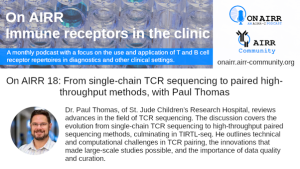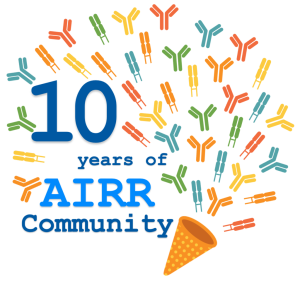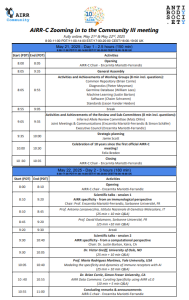We are thrilled to announce that the AIRR Community Meeting VIII will be held at Yale University from June 8 to 11, 2026!
Theme: Decoding and Recoding Immunity
Join us for four days of cutting-edge talks, discussions, and community-building centered on immune receptor research.
![]() Yale University, Connecticut
Yale University, Connecticut
![]() June 8–11, 2026
June 8–11, 2026
Stay tuned — more details on registration, abstract submissions, and program highlights coming soon!







